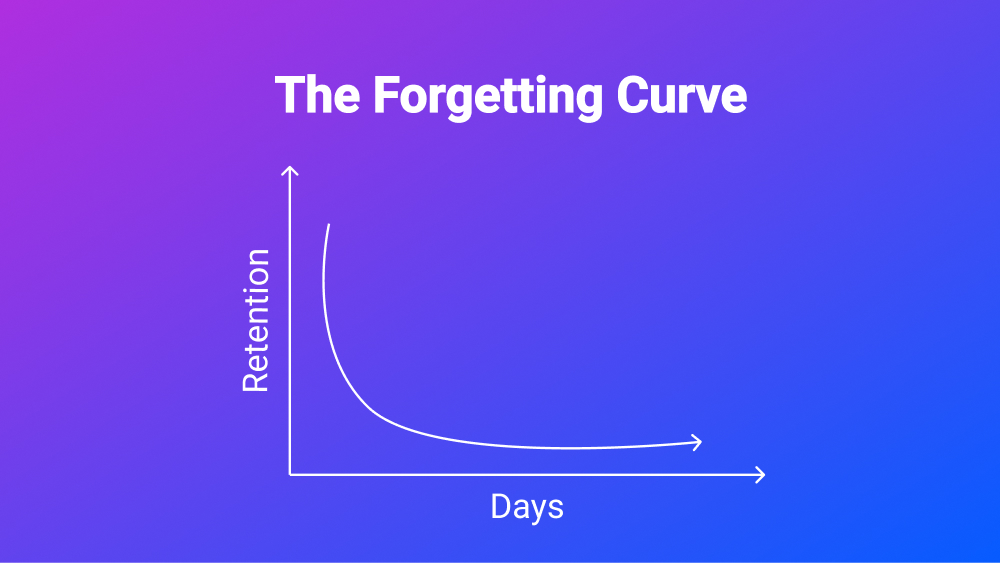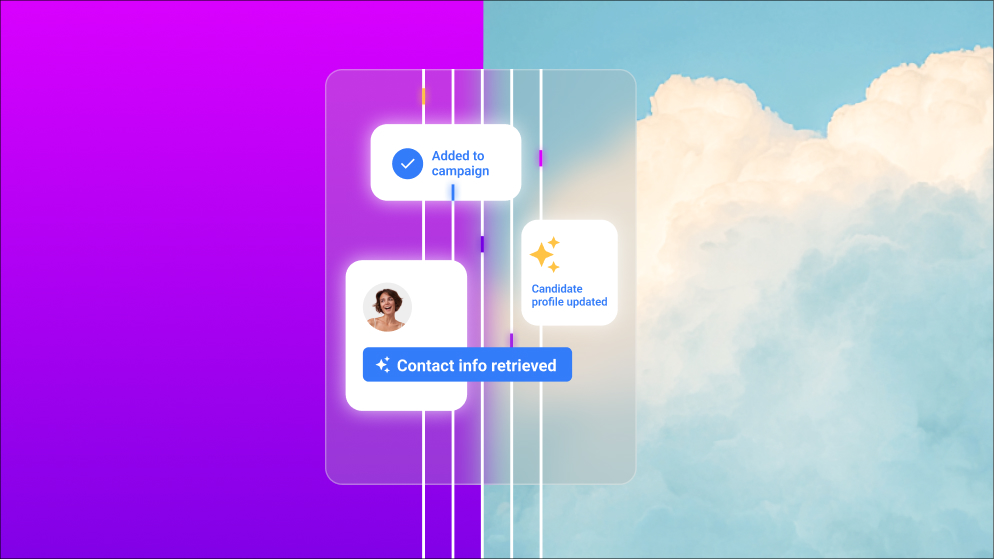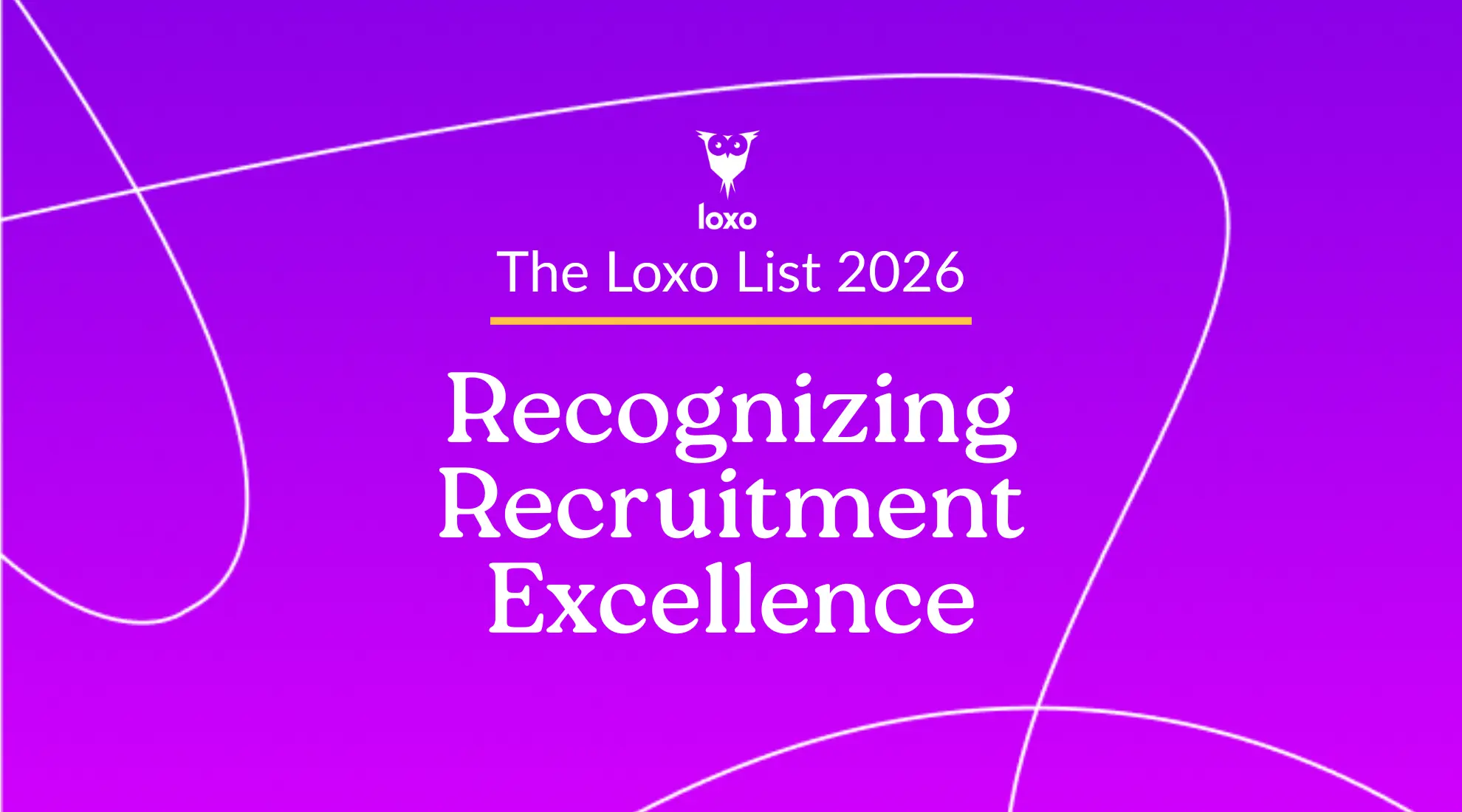I used to be a purist. I had my trusty notepad, my detailed color-coding system, my elaborate shorthand. I thought if I wasn't hunched over, furiously scribbling, I wasn't being a "real" writer, like the ones who used to pen entire novels on napkins or inside the margins of other books.
I'm sure there are recruiters who can relate — the ones who think the job is inextricable from the admin. Taking notes while on calls. Manually transcribing those notes from your notepad to your CRM when the call ends. And so on.
This used to be the only way to do things: a heavy manual lift, with a lot of room for error. Now, with AI agents and tech galore, we have the ability to change that — and it's becoming increasingly important that we do.
Because in those manual processes, what's really happening is we're not being fully present. We're missing crucial non-verbal cues. We’re asking questions but missing the answer because we're trying to scribble fast enough to keep up.
In short: We're trying to keep up with the conversation and our notes at the same time — and we're failing at both.
The candidate feels like we're not listening, and an hour later, the "Forgetting Curve" hits, and we've lost half the details anyway.
What is the Forgetting Curve?
The Forgetting Curve, also known as the Ebbinghaus Forgetting Curve, is a psychological model that describes how we lose memory of newly learned information over time if we don't make an effort to retain it. It was developed by German psychologist Hermann Ebbinghaus in the late 19th century.
The curve shows a steep initial decline in memory retention — meaning you forget a significant portion of what you learned very quickly, often within the first few hours or days. The silver(ish) lining? After the initial rapid drop, the rate of forgetting slows down.
According to Ebbinghaus's research, people tend to forget about 50% of new information within a day, and a substantial portion can be gone within a week without any review.
Factors that impact the curve
The speed at which you forget depends on several factors, including:
- The difficulty or relevance of the material: Information that is more meaningful or easier to understand is retained longer.
- Physiological factors: Stress and lack of sleep can accelerate forgetting.
- How the information is presented: Logically organized and clearly presented information is easier to remember.
What can we do about it?
The Forgetting Curve isn't an inevitable fate; Ebbinghaus himself found that it could be flattened through specific learning strategies. The core idea is that each time you review or recall information, you strengthen the memory and reset the forgetting curve, making the next decline much slower.
The reality for recruiters is this: if you're relying only on your memory or your half-baked, hand-written notes as a source of truth on candidate conversations, you're going to be missing huge pieces of the puzzle.
That's where an AI notetaker comes in.
Why should recruiters be using an AI notetaker?
It gives you back your superpower
Recruiters are often distracted trying to take notes during interviews. Important context gets missed or misremembered, and candidates can tell when a recruiter isn’t fully engaged. This makes interviews feel transactional instead of conversational.
Using an AI notetaker, you can focus on building rapport and asking better questions. Conversations flow naturally, leading to richer insights and more accurate evaluations post-interview. As a bonus, you'll improve the candidate experience and your professionalism.
It guarantees consistency and professionalism
Handwritten notes vary by recruiter, leading to a lack of consistency. Key details often get lost or poorly communicated to hiring managers, and follow-up steps are delayed because others don't have enough context. This leaves clients and hiring managers feeling uninformed and unsupported.
With an AI notetaker, everyone gets the same clear, structured information. Stakeholders can quickly review and make decisions, and a professional, repeatable handoff process builds trust with clients. This leads to higher consistency across teams and recruiters.
It eliminates the soul-crushing post-call busywork
Recruiters spend a lot of time after calls typing notes into systems. Important information gets forgotten or logged inconsistently, and juggling external notetaking tools leads to double work and data loss. This prevents teams from having a centralized, reliable record of interviews.
An AI notetaker automatically generates notes, transcripts, and summaries, saving hours of administrative work every week.
Who really needs an AI notetaker?
Recruiters with high call volume
If you're a high-volume recruiter in exec search or direct hire, you understand the pain points of spending hours on note-taking, forgetting insights after back-to-back interviews, and struggling to quickly create polished summaries for hiring managers.
An AI notetaker helps you automate post-interview documentation at scale. You can leverage the summaries to populate candidate write-ups and quickly scan transcripts for follow-up questions. This not only saves you hours of time each week but also leads to improved candidate evaluations, faster submittals, and a stronger professional brand.
Recruiters with high coordination needs
For those in staffing agencies, RPOs, or in-house recruiting, notes often live in emails or Word docs, making handoffs between sourcing, recruiting, and hiring managers clunky. Candidates may feel the process is repetitive, and hiring managers can feel out of the loop.
An AI notetaker is a game-changer for collaboration. You can use it on interviews across multiple roles and stakeholders, sharing the AI summaries directly with hiring managers. Storing the notes in a centralized place ensures all team members have access to the same context, leading to cleaner handoffs, faster decisions, and a better candidate experience.
Wrapping up
And that’s where the right tool makes all the difference. While many AI notetakers exist, most create a two-step process by requiring you to still manually transfer notes into your ATS. This is why we built the Loxo AI Notetaker, an agent that’s actually built into your ATS. The moment a call ends, the transcript, the recording, and the summary are already in the candidate’s profile. No more copying. No more pasting. No more logging into a different tool. It just... works. It’s one less subscription to manage, one less tab open in your browser, and one more hour you get back in your week to actually talk to people.
Ready to shape the future?
Your job is placing the best talent in the roles that will define their careers, their lives, and our future. Our job is making it easier for you to do it.



.png)

